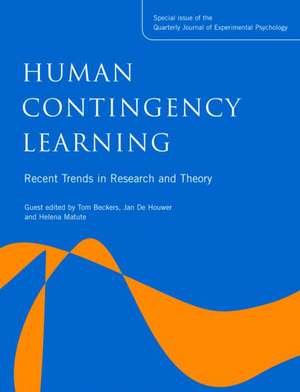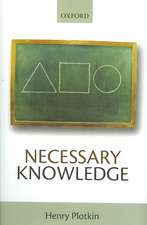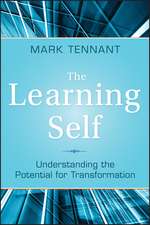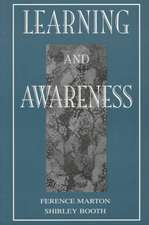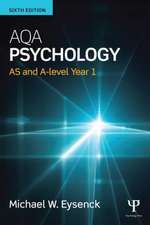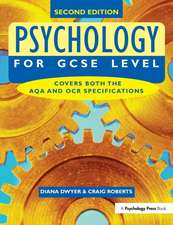Human Contingency Learning: Recent Trends in Research and Theory: A Special Issue of the Quarterly Journal of Experimental Psychology: Special Issues of the Quarterly Journal of Experimental Psychology
Editat de Tom Beckers, Jan De Houwer, Helena Matuteen Limba Engleză Hardback – 22 mar 2007
Preț: 674.06 lei
Preț vechi: 793.01 lei
-15% Nou
Puncte Express: 1011
Preț estimativ în valută:
128.98€ • 134.94$ • 107.15£
128.98€ • 134.94$ • 107.15£
Carte tipărită la comandă
Livrare economică 03-17 aprilie
Preluare comenzi: 021 569.72.76
Specificații
ISBN-13: 9781841698243
ISBN-10: 1841698245
Pagini: 216
Dimensiuni: 189 x 246 x 15 mm
Greutate: 0.57 kg
Ediția:1
Editura: Taylor & Francis
Colecția Psychology Press
Seria Special Issues of the Quarterly Journal of Experimental Psychology
Locul publicării:Oxford, United Kingdom
ISBN-10: 1841698245
Pagini: 216
Dimensiuni: 189 x 246 x 15 mm
Greutate: 0.57 kg
Ediția:1
Editura: Taylor & Francis
Colecția Psychology Press
Seria Special Issues of the Quarterly Journal of Experimental Psychology
Locul publicării:Oxford, United Kingdom
Cuprins
T. Beckers, J. De Houwer, H. Matute, Editorial: Human Contingency Learning. D. R. Shanks, Associationism and Cognition: Human Contingency Learning at 25. O. Pineño, R. R. Miller, Comparing Associative, Statistical, and Inferential Reasoning Accounts Of Human Contingency Learning. Y. Hagmayer, M. R. Waldmann, Inferences About Unobserved Causes in Human Contingency Learning. S. Vandorpe, J. De Houwer, T. Beckers, Outcome Maximality and Additivity Training Also Influence Cue Competition in Causal Learning When Learning Involves Many Cues and Events. P. L. Cobos, F. J. López, D. Luque, Interference Between Cues of the Same Outcome Depends on the Causal Interpretation of the Events. S. L. Booth, M. J. Buehner, Asymmetries in Cue Competition in Forward and Backward Blocking Designs: Further Evidence for Causal Model Theory. C. J. Mitchell, E. Livesey, P. F. Lovibond, A Dissociation Between Causal Judgement and the Ease With Which a Cause is Categorised With its Effect. J. De Houwer, S. Vandorpe, T. Beckers, Statistical Contingency has a Different Impact on Preparation Judgements Than on Causal Judgements. M. A. Vadillo, H. Matute, Predictions and Causal Estimations are not Supported by the Same Associative Structure. D. M. Karazinov, R. A. Boakes, Second Order Conditioning in Human Predictive Judgements When There is Little Time to Think. R. M. Msetfi, R. A. Murphy, J. Simpson, Depressive Realism and the Effect of Inter-trial-interval on Judgements of Zero, Positive and Negative Contingencies. L. G. Allan, S. Siegel, S. Hannah, The Sad Truth About Depressive Realism.
Notă biografică
Tom Beckers, Jan De Houwer, Helena Matute
Descriere
The present special issue presents an overview of recent developments and controversies in research on human contingency learning. Contributions range from purely fundamental, theoretical analyses, to more applied contributions, reflecting the breadth of scope of contemporary research on human contingency learning.
